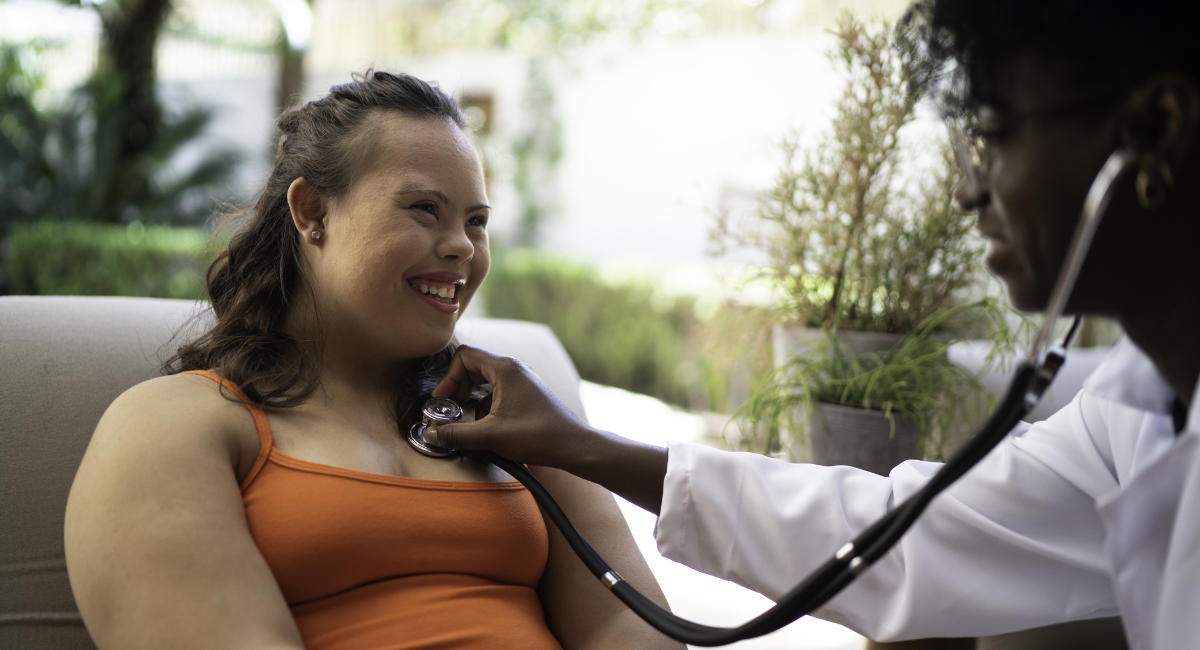A new report has found that adults with Down syndrome have difficulty finding quality health care, and are instead forced to navigate a system that treats them like children.
The Global Down Syndrome Foundation found that in the United States, there are only 15 medical programs that accept people with Down syndrome as patients once they turn 30. There are more adults with Down syndrome today than in previous decades, because infants with the condition are given lifesaving care, when before, they were left to die. That changed when courts ultimately decided it was illegal to withhold care based on disability.
“Those landmark rulings sealed the deal: Children with Down syndrome have the right to the same lifesaving treatment that any other child would deserve,” Brian Skotko, a doctor who leads Massachusetts General Hospital’s Down Syndrome Program, told KFF Health News. And while it has meant that people with Down syndrome are living longer, the medical system in the United States has not kept up.
Charlotte Woodward, 33, has Down syndrome and has become a common name in medicine due to her life-saving heart transplant — something often denied to people with disabilities. She has since campaigned to end discrimination surrounding organ transplants, and agreed with the report finding that health care can be difficult to access.
Instead of treating her as an adult, she said she is often treated like a child. Instead of speaking to her directly, doctors speak to her parents, and she has found that doctors don’t seem knowledgeable about Down syndrome in adults.
“That’s something that should change,” she said. “It shouldn’t just be pediatricians that are aware of these things. This is really an issue of civil rights.”
Brian Chicoine, a family practice physician who runs a Down syndrome program in Illinois, said he believes the issue is one of time. Many hospitals and clinics don’t want to take the extra time with a patient who has Down syndrome.
“It’s very important to us that we include the individuals with Down syndrome in their care,” he said. “If you’re doing that, you have to take your time. You have to explain things. You have to let them process. You have to let them answer. All of that takes more time.”
Nurse practitioner Moya Peterson leads a Down syndrome program at the University of Kansas Health System in Kansas City, Kansas. She said she makes sure to look her patients with Down syndrome in the eye, listen to their complaints, and take them seriously.
“If they say it hurts, I listen,” she said. “They’re not going to tell you about it until it hurts bad.”
One woman, Samantha Lesmeister, became a patient of Peterson’s after falling in the shower and hitting her head. Though she had become lethargic and sad, and began losing her ability to speak, general practice physicians brushed it off, saying it was common for adults with Down syndrome. Her mother, Marilyn Lesmeister, refused to accept that, and found Peterson, who took the time to run a battery of tests.
It was only then that the family discovered Samantha had suffered a traumatic brain injury; now, with treatment, she is regaining some of the abilities she lost. Finding Peterson has given her hope for the future. “I just want her to be taken care of and loved like I love her,” she said. “I want her to be taken care of like a person, and not a condition.”








